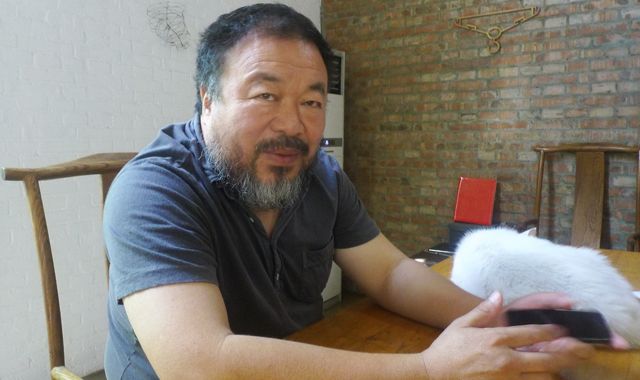Civil rights lawyer Xia Lin was sentenced last week to 12 years in jail for fraud, the harshest sentence to date in Xi Jinping’s ongoing crackdown on legal advocacy and rights activism. The prominent lawyer was tried for failing to pay back personal loans, and many—including Xia himself, who vowed to appeal the verdict—saw the charge as a means to punish him for the sensitive cases he had taken over the years and for his refusal to back down from his ideals. Artist and activist Ai Weiwei, one of the many high-profile clients that Xia defended, sees Xia’s sentence as further evidence that China’s judicial system is “unfair by nature.” From CNN:
When Xia Lin was arrested, I immediately connected the incident to his role in Guo Yushan’s case. I was relieved to hear of Guo’s release, thinking that this could indicate that Xia’s sentence would not be too severe. However, Chinese politics and rule of law do not follow any logical reasoning, and my analysis was once again proven wrong. Xia Lin received a harsh verdict and an unjustifiable one.
[…] The Chinese judicial system has never been independent and will never become independent.
[…] The judicial system is obligated to prove that it is fair and just. As citizens — or even a lesser existence without the right to elections — we are owed the right to a fair trial. If the courts fail to prove that it is fair, then it should be presumed unfair.
Xia Lin’s sentence is no exception. I find it absurd that he was sentenced to 12 years for a loan dispute. This shows that China manifests significant discrepancies on its treatment of justice issues and on its parameters for criminality. Xia Lin is not a corrupt official who embezzled public funds. His fault, if any, related to a private loan dispute. [Source]
Ai also posted his comments to Instagram, which has become his social media channel of choice for documenting his ongoing work and activism in support of refugees. Ai Weiwei’s statement on the biased nature of China’s judiciary contrasts with comments he made immediately following last year’s “Black Friday” crackdown. When asked about the detention of nearly 300 rights activists and lawyers by Germany’s Süddeutsche Zeitung last August, Ai responded:
Yes, there are some cases where the authorities act quite totalitarian. But it’s very different from when I was detained. Today, when they detain you, they come with arrest orders. Courts decide what kind of treatment these people will get. They follow procedures. And if there is not enough proof they release you. The tactics are not as unlawful as a few years ago. [Source]
Chinese legal scholar Jerome Cohen at the time noted at ChinaFile (via CDT) that the increasingly heavy-handed crackdown on legal advocacy had dashed his hopes in the gradual improvement of the country’s legal system. The scholar noted that “[instead of] practice gradually coming to conform to legislation, legislation is being revised to conform to practice. The National People’s Congress is enacting a comprehensive legislative agenda designed to confirm China as a de facto garrison state administered by the police and other domestic security forces.”
The latest step in this program is a regulation amendment which could strip law firms of their licenses if their staff attorneys challenge the judiciary with commentary or by signing petitions or open letters. As the South China Morning Post’s Jun Mai reports, the amendment would more specifically prohibit the alleged misconduct of lawyers detained in last year’s “Black Friday” crackdown.”
The amendment, which will come into effect in November, is seen as another move to silence lawyers critical of the authorities as Beijing wraps up a campaign to crack down on rights lawyers that began last July. The crackdown is known as the 709 incident, referring to the date of the first detentions, and more than 300 rights lawyers and activists have been detained, sentenced or questioned since then.
[…] The latest amended regulations on law firms include new items that hold firms responsible if their lawyers make “misleading and distorting comments” about cases, or “provoke discontent towards the party”.
Firms are also liable for punishment if their lawyers sign petitions, file open letters or hold legal forums to discuss cases to “exert pressure on” or “attack” judicial departments.
[…] The amendment provides new legal grounds for the authorities to limit discussions by lawyers on controversial cases, said veteran criminal lawyer Liu Xiaoyuan. [Source]







